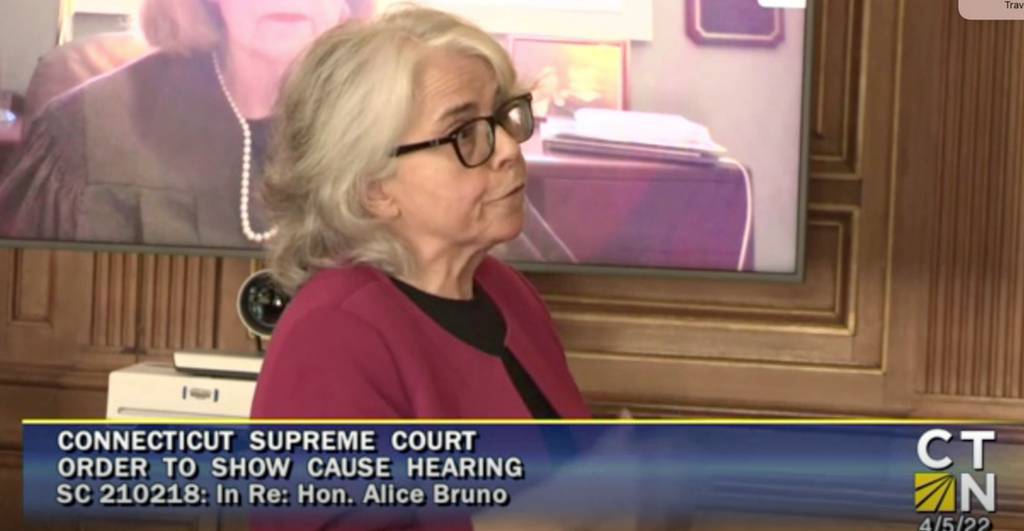Connecticut judge suspended after collecting $400k salary while missing 2.5 years of work for stress

A Connecticut Supreme Court judge who continued receiving roughly $400,000 in salary while on leave from her position for stress-related health problems over the past two-and-a-half years has agreed to a suspension from her role.
Last month, the Connecticut Supreme Court initiated an investigation into Superior Court Judge Alice Bruno’s prolonged absence, appointing state Inspector General Robert Devlin, a retired judge, to lead the charge.
Judge Bruno’s agreement to suspension without pay will commence on 2 June and will terminate the ongoing investigation that signalled a rare departure from the state’s top court, as they began probing whether to remove a constitutionally appointed judge for conduct viewed as potentially reflecting poorly on the court.
In a hearing last month, the Connecticut judge defended her absence by outlining how an environment within the judiciary administrators had become what she characterised as hostile, which then led to undisclosed health problems.
Treatment for these problems required medical appointments, which Ms Bruno explained would sometimes collide with the court’s operational hours and thus lead to her missing assignments and occasionally prevent her from finishing writing decisions.
“It was a culmination of many things, many different kinds of feedback from the branch and being told that I was not able to do the job,” the judge testified during a hearing last month at the Connecticut Supreme Court.
“It was difficult to continue and try to do a job that you are being told you cannot do.”
Hostility within the legislature, she said, began from her first day on the bench.
“The day I finished testifying before the legislature I was told I couldn’t do the job … before I was even put on the bench, sir. So it was insidious and it continued throughout the time I was on the bench.”
The point at which she argues it reached a fever pitch was in August 2019, about four years after she was sworn in, when Chief Court Administrator Patrick Carroll III allegedly urged her to retire.
Judge Bruno reached an agreement with Mr Devlin, the former judge tasked with probing her prolonged absences, and the pair were able to negotiate a resolution that would see Ms Bruno applying for disability retirement, which would entitle her to $120,000 a year, approximately two-thirds of what her salary on the bench was.
During her brief appearance on the stand last month, and according to court filings viewed by the Hartford Courant, Ms Bruno had tried to find a resolution earlier with judicial administrators that would’ve seen her working closer to home, a location where she found her colleagues more supportive.
This suggestion, however, was shut down and Ms Bruno says she was instead assigned to work at a courthouse where administrators knew she had a poor working relationship with colleagues, to the point of hostile.
“Judge Bruno is clearly dismayed that issues involving her medical conditions interfered with her ability to continue to serve as a judge,” Jacques Pareteau, the judge’s attorney, said to the Hartford Courant. “By agreeing to this resolution of the Court’s investigation, Judge Bruno has rightly focused her attention on maintaining her health as an essential priority while she pursues disability retirement.”
The Independent reached out to Mr Pareteau for comment on his client’s case and could not be reached immediately.
According to the Courant, despite reaching a resolution, Ms Bruno plans to press ahead with lodging a complaint with the Commission on Human Rights and Opportunities in Connecticut, where she claims that she was not provided appropriate accommodation to cope with her ongoing medical disability.
The state’s commission can decide to award damages to a complainant, and those damages can precede disability rights suits.

